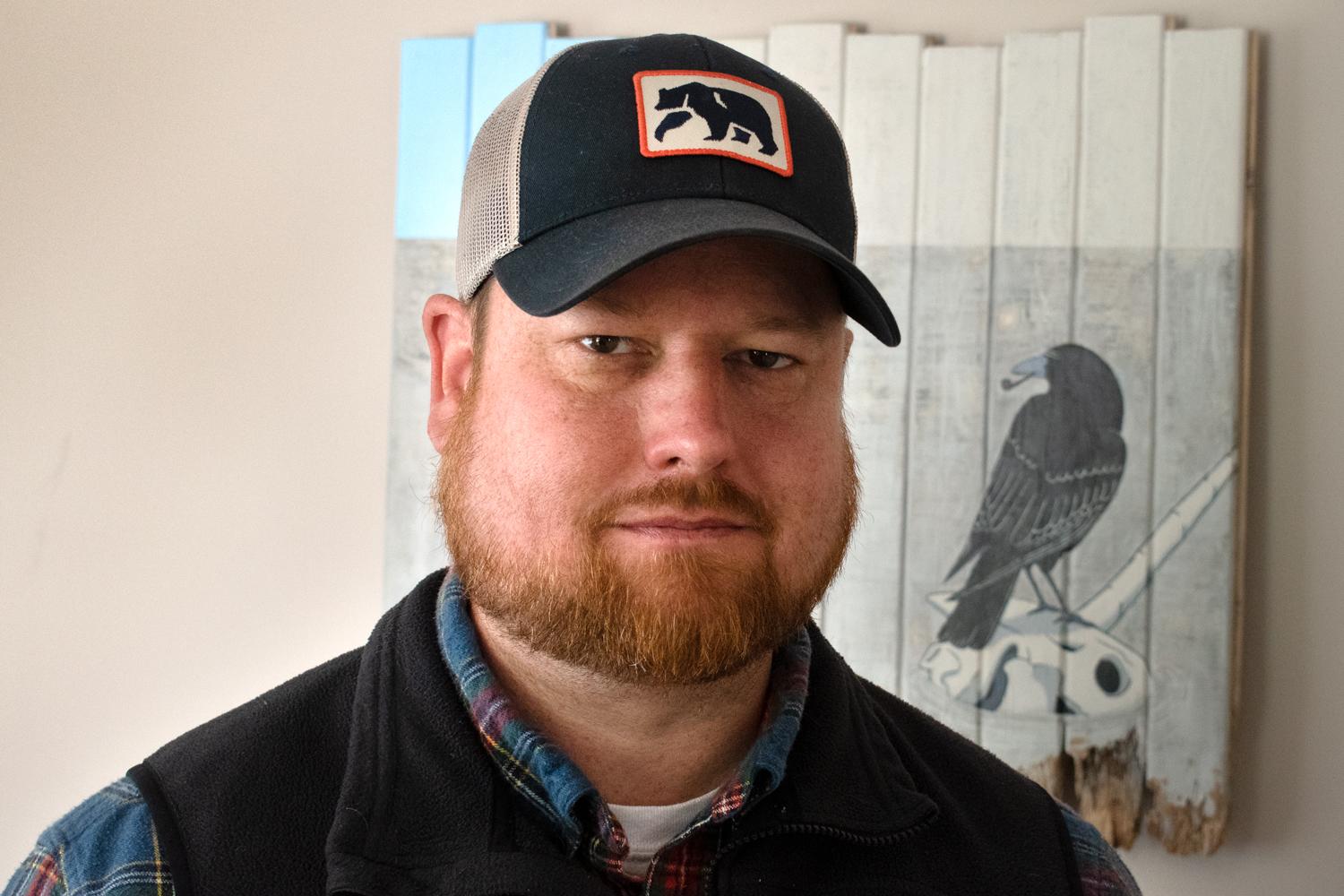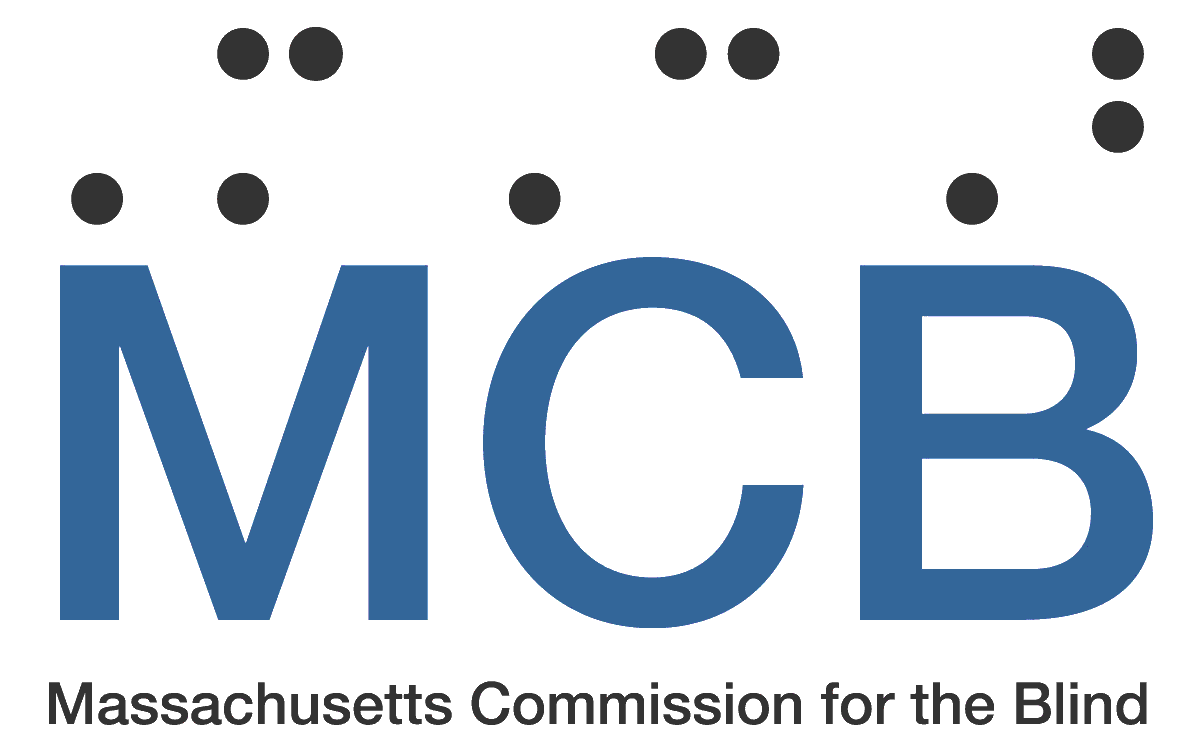- Massachusetts Commission for the Blind

By Mary Cresse
As Adjunct Professor of Animation & Motion Media at Lesley Art + Design in Cambridge, Bill Porter remains busy. He is currently conducting online classes, painting, producing films, exhibiting artwork, and writing a book. Last but certainly not least, he is acting as an educational consultant and trainer, for both students and faculty, in how to leverage technology to be the most effective with online, hybrid, and face-to-face instruction. When he is not creating or teaching art, Bill can be found gardening or cooking at his home in a suburb west of Boston.
Bill also receives services from the Massachusetts Commission for the Blind (MCB). He has the dominant form of retinitis pigmentosa. His grandmother had it, and his mother does also. Bill suspected that he had the condition when he was approximately 10 years old because he began having trouble with night vision. He was formally diagnosed with the condition at age 18, and, in 2019, he was diagnosed as legally blind and registered with MCB. Bill credits MCB, as well as The Carroll Center for the Blind and the Massachusetts Association for the Blind and Visually Impaired (MABVI), for helping him acclimate to vision loss.
Bill says that vision loss does not define him. Rather, at 8 years old, Bill says that he found his life’s purpose in art.
An Auspicious Career
Like many kids, Bill loved cartoons and comic strips. At his home in suburban Boston, he started drawing his own cartoons with materials left over from his father who was a painting contractor. Bill had access to reclaimed wood, house paint, and other materials upon which he would create his designs inspired by pop culture.
When Bill was diagnosed with retinitis pigmentosa, he says that an eye care provider gave him some questionable advice. “The first thing he told me to do was to give up art and not go out in the daytime,” said Bill. He remembers the exact date of July 6, 1993, because it was just weeks before he was supposed to attend college at UMass Amherst as an art student. “I went home and cried! And then I thought, ‘No, I’ll show you!’”
After graduating from college, Bill found commercial work as a graphic designer, videographer, animator, illustrator, and web designer. In 2013, after some soul searching, he moved away from commercial work to art practice in a personal studio. He enrolled in the Art Institute of Boston (now Lesley Art + Design) to achieve his master’s degree in Fine Arts with a Visual Arts focus. During that time, he was also working as a Learning Technology Designer at Lesley, a position he continues after 10 years in addition to his current role of Adjunct Professor. Bill is currently working on a cross disciplinary project with 4 other faculty members researching how to teach and facilitate effective peer reviews and critiques. The group has presented at many conferences in the area and will present virtually to an international audience at The Learner Research Conference in Poland in July 2021. This work has culminated in a book deal with Stylus Publishing , LLC and will be released very soon.
2019: A Turning Point
For much of his life, Bill handled his vision loss without telling many people, for fear of discrimination. However, as time passed, it became increasingly difficult to be discreet about his vision loss, especially as he needed to use a white cane.
Finally, in 2019, Bill adjusted to his vision loss in ways that he felt would better serve him in life and art. He met with his current counselor at MCB. “She was helpful in assessing my needs, in particular coordinating and assigning someone to work with me for white cane training,” said Bill, who learned how to confidently get around his neighborhood before venturing to other places.
At the same time, Bill also informed his employers of his condition. “My greatest fear was letting them all know my condition and asking for accommodations…,” said Bill. However, his employers were extremely supportive.
Bill said the feeling of disclosure was bittersweet. For example, it was emotional for Bill to give up his driver’s license. “I like to be independent, to do things myself, and I hate depending on others for help,” explained Bill who is constantly traveling for art exhibits. “I’m exhibiting work in all kinds of places, where I have to deliver the work or go to an art exhibition, sometimes all across New England.”
Bill says that he found an element of relief in disclosure as his adaptations set the foundation for other life decisions. Mobility challenges furthered Bill’s need for a home base for his artwork, so Bill converted his garage to a home studio. He started using a magnifier on his phone and now wears a Sunu band, a smart wearable device that relies on vibrations from the body to inform data.
Recently, Bill discovered the work of filmmaker Rodney Evans, who also has retinitis pigmentosa. His film Vision Portraits (2019) was described by the Los Angeles Times as “a touchingly honest ode to the inner life of all artists.” The film addresses the experience of creating art with vision loss through interviews with three artists who are blind and visually impaired, including a photographer, dancer, and writer. Bill was so inspired that he invited Rodney to screen the film at Lesley last year for students and faculty.
Plans for the Future
Bill does not know what is next for his career or how his art and teaching will adapt and change due to his vision loss, but he is confident in his ability to persevere.
“We’ll see how it goes,” said Bill. “Luckily, the progression has been slow. However, I do not have the peripheral vision to see broad strokes. But I can still do animation that makes sense; I can draw on a computer and zoom in on things.”
SOURCES:
Wilmington Community Access Television via YouTube
LA Times: https://www.rottentomatoes.com/m/vision_portraits
Bill Porter is represented by Coastal Contemporary Gallery in Newport, Rhode Island. Read more about his career at www.billaporter.com
